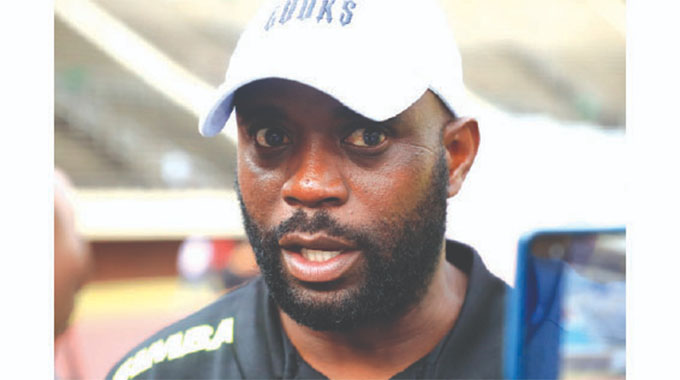Athens 2004: The inside story
disappointing results.
After the 1980 gold medal won by the women’s hockey team in Moscow hopes had been high that more medals would come our way at subsequent editions of this quadrennial showcase.
Unfortunately Team Zimbabwe in spite of its best efforts had fallen short of the nation’s high expectations.
Of course there had been some flashes of brilliance here and there over the years; however these “consolation prizes” could not lead to fully-fledged nationwide celebrations but in a way still served a useful purpose; to keep the medal hopes alive; albeit in a rather remote sense.
Examples are some performances in the 1984 Los Angeles Olympics when the late top distance runner Zephania Ncube reached the 5 000-metre semi-finals and boxer Ndaba Dube also exited the competition at the quarter-final stage.
Not many were prepared to bet on a changed script in Athens given the trend established over the five editions namely Los Angels ’84; Seoul ’88; Barcelona ’92; Atlanta ’96 and Sydney 2000; in fact the safe bet was on the status quo — no medals — what with the women’s hockey team itself not getting anywhere near qualification for the Olympics in a quarter of a century.
It was against this rather grim background that I once again took up my appointment as chef de mission of Team Zimbabwe and began work in earnest to create a conducive environment for the athletes to produce their best possible performances.
I could not ask for more than the best that each athlete could give but again success could only be possible if my management team (including coaches and medical personnel) and I played our part.
One of the “survivors” from Sydney 2000 was female swimmer Kirsty Coventry who had in those Games, as expected, not made the finals, being a first timer but had gained valuable exposure, motivation and inspiration in the process.
She was now a key member of Team Zimbabwe having posted impressive performances against tough opponents in the run-up to the Athens Games.
Based in the United States and on a sports scholarship at Auburn University, Coventry was benefiting from use of state of the art facilities, excellent coaching expertise, strong training partners in the college swimming squad and the equally important world class competition exposure through the United States collegiate system.
All these facets are of course essential elements of success at world level.
It should be recalled that she had in fact shot to major prominence in 2002 at the Commonwealth Games in Manchester when she clinched a gold medal in the 200-metre individual medley event. She now was no longer the novice that had not made waves, so to say, in Sydney.
When I got to Athens, and well before the opening ceremony, I had a premonition or strong gut feeling that Team Zimbabwe would not return home empty-handed.
Of course it was clear to me that the athlete most likely to get a medal (if any) at these games was Coventry based on her recent outstanding performances as well as the confidence she and her coach Kim Brackin expressed on her current form; usually a decisive factor at this level.
Although I did not want to talk about winning medals before the start of the competition, I decided to do some forward planning in case my “dream” somehow became a reality.
I found myself taking a calculated risk, one of many in my career, and at the same time praying hard that it would not backfire.
After going through the niceties, I then asked her the dreaded hypothetical question: “If by any chance you win a medal here, would you be prepared to travel to Zimbabwe first to celebrate the success with the whole nation before going back to your United States base?”
To my great relief she simply and without hesitation responded: “Yes of course!”
I thanked her for understanding and appreciating the bigger picture and wished her the best in her competition. During the final preparation phase in Athens I took the liberty to ask Team Zimbabwe managers and coaches about the realistic prospects of athletes in their respective sport codes.
What Brackin said about Coventry was that she was in very good shape and should do well in the competition.
Peter Dalzell, who was the swimming manager, on the other hand, only managed to say that they were “quietly confident” about her prospects.
It appeared that nobody was prepared to stick their neck out and hazard an actual prediction on performance preferring instead to stick to safe terminology.
This was understandable but I remained undaunted because for some reason my premonition still remained unshaken.
The Zimbabwe Olympic Committee had for the first time put on the table incentives which some thought were unrealistic and therefore unlikely to be paid at the end of the day.
Some felt that ZOC was probably counting on no medals being won in Athens given the enduring trend since 1984. I had the unenviable task of convincing those who inquired that the incentives were indeed genuine and would be honoured if and when medals were won. The gold medalists were to receive US$10 000 each while US$7 500 was set aside for silver and US$5 000 for bronze.
The results from Athens are of course common knowledge but when Coventry made history by winning the three Olympic medals encompassing the three colours, Zimbabwe was firmly thrust on the world map.
The nation finally treated itself to a very generous dose of euphoria.
Lewis Banda, who reached the 400-metre semi-final as well as Wayne Black and Kevin Ullyet, who got to the quarter-finals of the tennis doubles competition, also impressed in Athens.








Comments